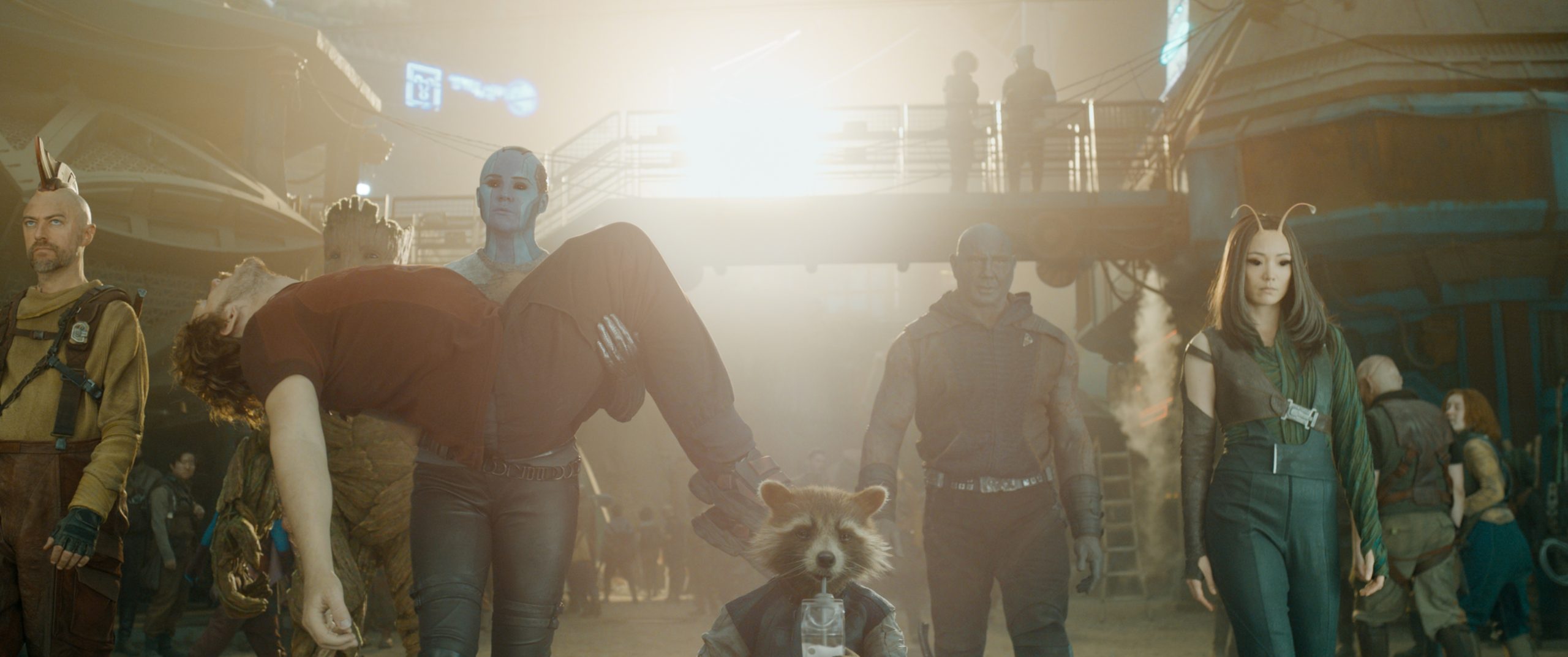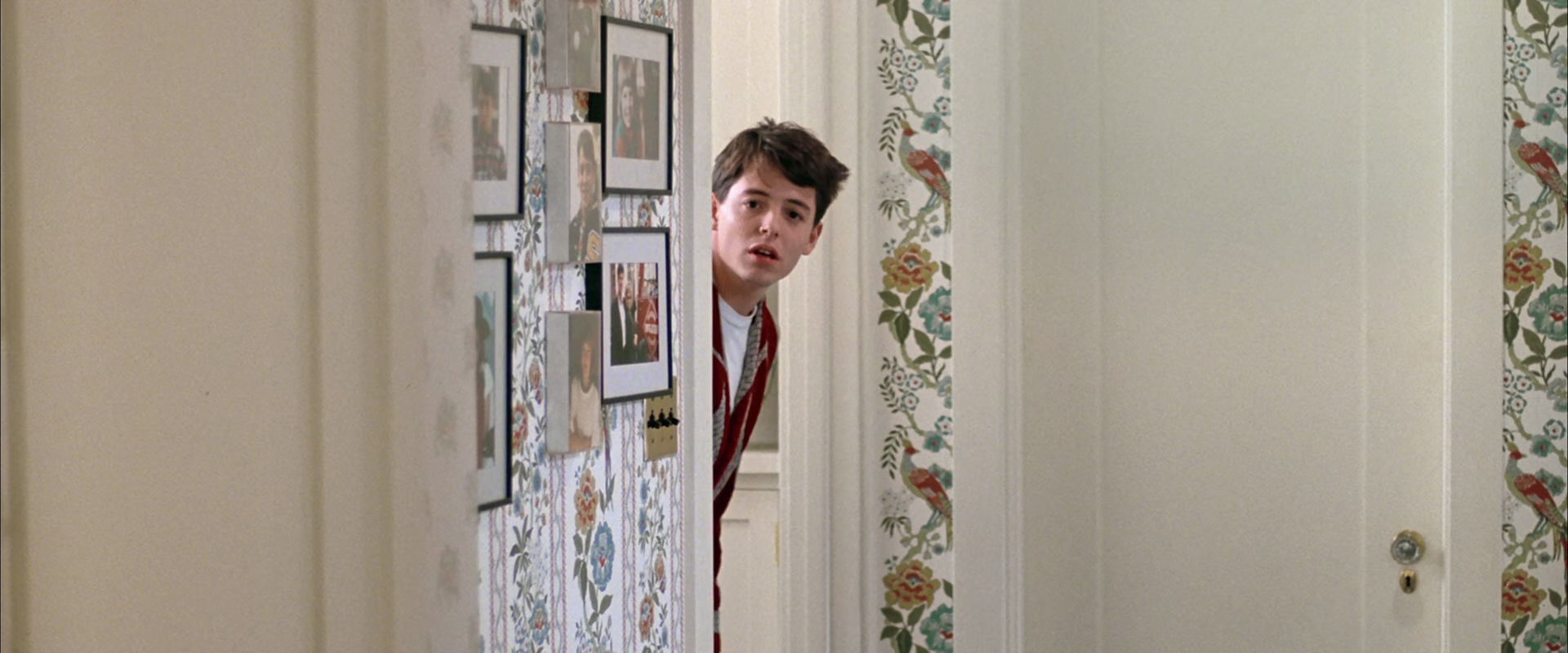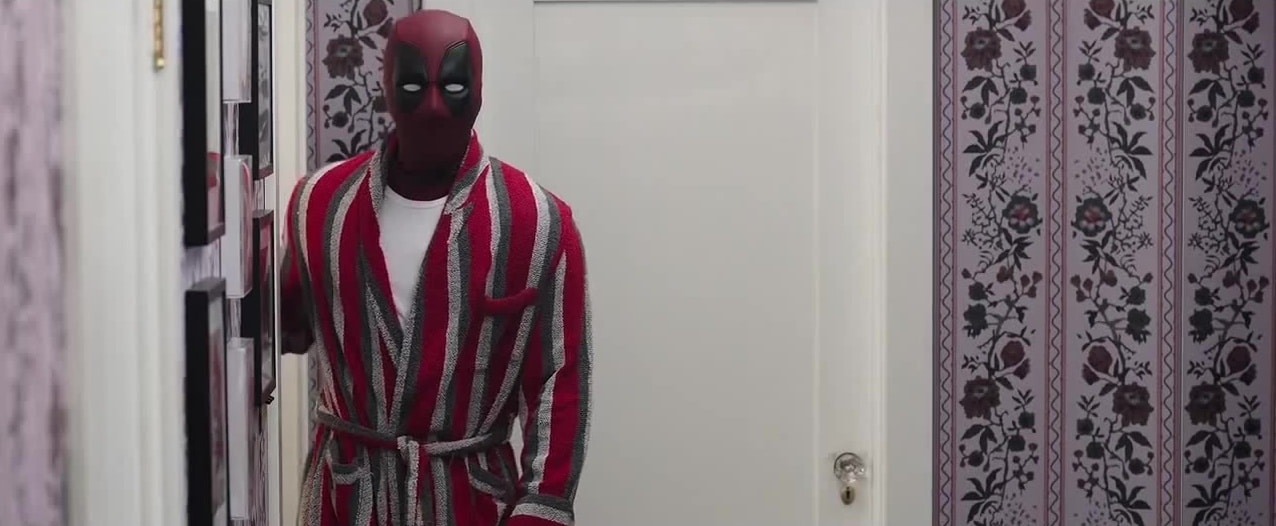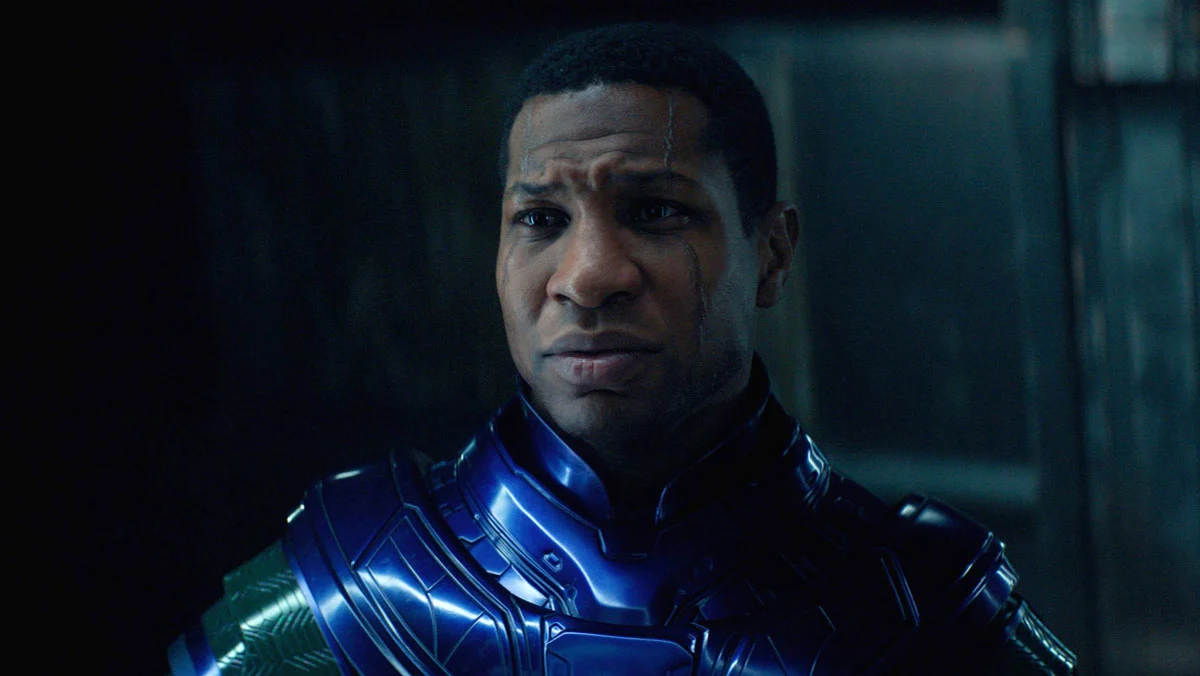Warning: this article contains spoilers for the post-credits scenes in Marvel’s Guardians of the Galaxy Vol. 3 and previous MCU films!
The release of any new movie from the Marvel Cinematic Universe (MCU) – most recently James Gunn’s Guardians of the Galaxy Vol. 3 – brings with it a number of now exhaustive accompaniments. Tiresome online superhero film discourse is likely, excessive amounts of daily cinema screenings are to be expected, and grown men whinging over even the slightest hint of anything progressive or inclusive is extremely probable.
However, what’s certainly guaranteed is a post-credits scene, and sometimes as a special treat, there’s two. But maybe the real treat would be if there weren’t any at all?
Yes, because what was once a fun, surprising and genuinely delightful rarity – often only stumbled upon by chance after home viewings – has now become something entirely wearisome, and Marvel are largely to blame. With their cinematic universe growing exponentially since 2008, they have exploited post-credits scenes in order to set up their future projects. At first these scenes were well utilised, but the studio’s constant cinematic conveyor belt of comic book content has caused a spike in the deadly ailment known as superhero fatigue.

(L-R): Sean Gunn as Kraglin, Groot (voiced by Vin Diesel), Chris Pratt as Peter Quill/Star-Lord, Karen Gillan as Nebula, Rocket (voiced by Bradley Cooper), Dave Bautista as Drax, and Pom Klementieff as Mantis in Marvel Studios’ Guardians of the Galaxy Vol. 3. Photo courtesy of Marvel Studios. © 2023 MARVEL.
And, unfortunately, one of its main side effects is a complete lack of patience for the post-credits scene.
How the post-credits boom started
Of course post-credits scenes existed long before MCU producer Kevin Feige used them to enact his Thanos-like chokehold on unsuspecting audiences. Cinema’s first post-credits scene was in the 1966 spy comedy The Silencers, starring Dean Martin as agent Matt Helm.
It was a simple scene combined with overlain text that teased the character’s next adventure. Since then, post-credits scenes have evolved, appearing in many films over the years and continuing to be particularly popular with comedies. Among others, both Airplane! (1980) and Clerks (1994) used them in an attempt to get one final laugh.
A further and more popular example is John Hughes’ classic Ferris Bueller’s Day Off (1986). The title character reappears after the credits and tells the audiences to “go home.” It’s not exactly a knee-slapper, but it’s a fun and more importantly, unexpected addition to the main film.

Ferris Bueller’s Day Off. Credit: Paramount Pictures
It made an impact too; Ryan Reynolds recreated it in Deadpool (2016). Amidst the anti-hero’s spoof of Hughes’ famous scene, he used the rest of his post-credits scene to make fun of the MCU by taking aim at the post-credits scene from Iron Man (2008).
Have post-credits scenes become an obligation?
Now credit where credit is due: initially the MCU post-credits scenes were truly something to look forward to. Early fans of this cinematic universe would look around with a smug disbelief in cinemas as other, less-informed viewers, would leave before the credits were over.
Soon the majority of audiences knew what to expect and wouldn’t budge until all the credits had rolled – much to the dismay of every cinema employee who’s had the displeasure of working a midnight screening. It’s easy to see why audiences were keen to stay though. Cinema truly shifted when Nick Fury began assembling the Avengers at the end of Iron Man, and when Captain America mocked audiences’ misplaced patience at the end of Spider-Man: Homecoming (2017), it was genuinely funny.
However, it’s ironic and very telling that despite the comedic effectiveness of the latter scene, the disappointment Captain America discusses: “You wonder why you waited so long for something so disappointing” has now become a reality for post-credits scenes as a whole.

2008’s Iron Man featured Nick Fury assembling the Avengers after the credits had rolled. Credit: Marvel Studios
Despite many post-credits scenes being worthwhile, Marvel’s increased output – the critical turning point being the introduction of their multiple Disney+ series – has oversaturated the very market they monopolised. In doing so they have made their whole cinematic model (post-credits scenes very much included) relentlessly stringent and painfully dull. Maybe Martin Scorsese was on to something when he claimed Marvel movies are “not cinema.”
With this new lack of interest, self-inflicted by their focus on quantity rather than quality, and provable by recently lower box office returns, it’s bold of Marvel to expect the same attentiveness from their audience. Are they really still expecting us to sit through credits to get a seconds-long glimpse at the latest in an absurdly long line of projects? Marvel should consider themselves lucky that audiences are still going to see their films in the cinema at all!
Of course, there will always be devoted fans who will both venture to the cinema and stay for post-credits scenes, but with increasing numbers of viewers simply turning to the internet to find out what happens in these moments, truly, what’s the point? The charm was always in the scenes’ unexpected, cheeky nature.
Is it just a Marvel issue?
Whilst post-credits scenes can no longer be considered shocking, James Gunn’s well-received Guardians threequel has managed to surprise critics by signalling somewhat of a return to form for the MCU.

Rocket (voiced by Bradley Cooper) in Marvel Studios’ Guardians of the Galaxy Vol. 3. Photo courtesy of Marvel Studios. © 2023 MARVEL.
Despite this enhanced quality – at least compared to the last four or so MCU films released – it still contributes to the post-credits problem. Irrespective of the film’s great sense of finality, it features two post-credits scenes. One sets up a new iteration of the Guardians team and the other teases the return of Chris Pratt’s Star-Lord, who has literally just been given a satisfying ending. Can nothing be final? Apparently not with post-credits scenes.
What’s worse and actually more alarming is that this is far from just a Marvel problem, as these days, in a post-MCU world, it seems every blockbuster has to have a post-credits scene. Of the current top five highest grossing films of 2023 (The Super Mario Bros. Movie, Ant-Man and the Wasp: Quantumania, John Wick: Chapter 4, Creed III and Dungeons and Dragons: Honor Among Thieves) four feature post-credits scenes. Only Michael B. Jordan’s directorial debut Creed III is free from the trope. Furthermore, Scream VI, Shazam! Fury of the Gods and even Cocaine Bear – which all appear in the top 10 – also indulge in additional scenes, whether that be mid or post-credits.
Admittedly, several of these films use their post-credits scenes well, for comedy rather than to set up sequels. In typically meta fashion, Scream VI even takes a shot at cinema’s overuse of the trend as Jasmin Savoy Brown’s character Mindy Meeks states “Not every movie needs a post-credits scene,” and she’s right. This self-awareness acutely demonstrates just how widespread post-credits scenes have become, and that’s the issue. Marvel’s aforementioned monopoly on the superhero stinger has made post-credits scenes an industry-wide epidemic, synonymous with their exhaustive output.
Consequently, the enjoyment these scenes once provided has now been replaced with what feels more like an obligation to watch. Previously when cinema screens would fade to black and the directing credit would appear, this was the audience’s cue to leave, but not anymore. It now prompts an uncertainty about whether there’s more to see or not.

Credit: 20th Century Studios
If you do leave, you might risk missing an important scene that should probably have been in the main body of the film anyway. If you do have the confidence to leave immediately that’s fine, but if you don’t get out quick enough a mid-credits scene may begin. Then you’re left awkwardly standing in the space between your seat and the exit trying to look back at the screen. The simple act of leaving the cinema, has never been so complicated!
With all this in mind it’s surely time to restore peace to cinemas. Audiences must be released from the plague of the post-credits scene and the irksome routine it has facilitated blockbuster movies to impose on us. Ferris Bueller’s own post-credits words feel more relevant than ever, as when the film’s over, truthfully, we all just want to “go home.”




